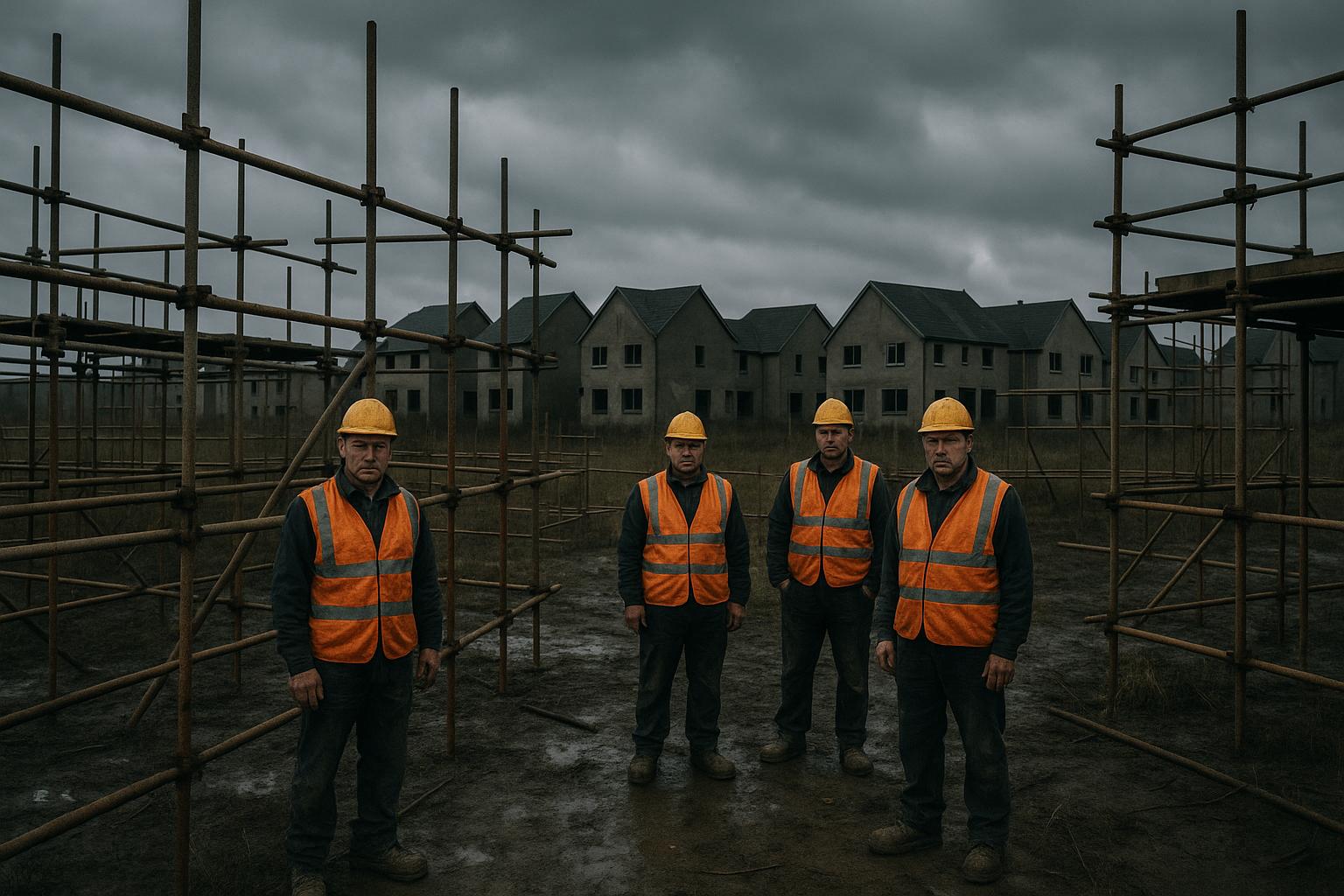An inquiry by MPs has decisively found that nature is not a barrier to housing growth, directly challenging claims made by UK government ministers who have portrayed environmental protections as obstacles to development. Toby Perkins, chair of the Environmental Audit Committee, criticised what he described as a "lazy narrative" scapegoating nature for delays in housing delivery. Perkins emphasised that a healthy environment is essential for creating resilient towns and neighbourhoods and must be integrated into housing strategies, not sidelined.
The committee's report from its investigation into environmental sustainability and housing growth highlights severe skills shortages in ecology, planning, and construction as the true challenges to meeting the government’s housebuilding ambitions. It points out that local planning authorities lack the ecological expertise needed to properly manage development alongside environmental protections, and staff at Natural England, which will play a larger regulatory role under new planning reforms, are "stretched to their limits." Perkins noted that delivering 1.5 million new homes by the parliament's end will require unprecedented effort and cannot be achieved by blaming nature for the difficulties.
Recent government admissions further weaken the argument that environmental laws significantly hinder housing development. An impact assessment disclosed by ministers revealed scant evidence that protections for nature cause meaningful delays in building projects. This admission has fuelled criticism of the government's ongoing Planning and Infrastructure Bill, which is at the final stage before being enacted into law. The bill includes provisions to allow developers to bypass site-specific environmental surveys and mitigation by contributing to a central nature recovery fund, which would finance improvements elsewhere rather than on the affected site.
Environmental groups and some MPs have campaigned strongly to maintain robust legal safeguards for wildlife and rare habitats amid concerns that the bill’s approach could undermine efforts to halt biodiversity decline. The Environmental Audit Committee expressed worry that the legislation as currently drafted risks the UK missing its legally mandated target to halt the decline of nature by 2030 and achieve restoration by 2042.
Natural England’s new role in administering the national nature restoration fund has raised potential conflicts of interest, critics say, since the body will both regulate builders and receive developer-funded money. This dual role has been questioned by ecologists and environmental advocates, who argue it could weaken enforcement of environmental duties at development sites.
The tension between Ministers’ housing delivery ambitions and environmental protection was underscored in recent parliamentary debates and committee sessions. For example, during a Commons debate in November, Liberal Democrat MP Alex Brewer highlighted how nature is unfairly blamed for the housing crisis, pointing out that protecting ancient woodlands, wildlife, and chalk streams should not be seen as anti-growth. Similarly, Environmental Audit Committee inquiries have featured testimonies from major housebuilders acknowledging that it is possible to balance new home construction with environmental goals.
However, attempts to strengthen nature protections in the Planning and Infrastructure Bill have faced heavy opposition. Reports indicate that Downing Street and the Treasury intervened to block concessions after pro-housing MPs pushed back against Labour amendments aimed at enhancing environmental safeguards. This reveals ongoing friction within government circles between priorities for accelerating housebuilding and commitments to environmental sustainability.
In sum, while government ministers have frequently framed nature as an inconvenient barrier to housing growth, parliamentary scrutiny and expert evidence portray a more nuanced reality. The principal obstacles lie in skills shortages and under-resourced planning authorities rather than environmental laws themselves. Protecting and integrating nature remains vital to building sustainable, resilient communities, an imperative that should drive policy reform rather than be discounted in pursuit of development targets.
📌 Reference Map:
- [1] (The Guardian) - Paragraphs 1, 2, 4, 5, 6, 7, 8
- [2] (The Guardian) - Paragraph 1, 2
- [3] (The Guardian) - Paragraph 3
- [4] (Environmental Audit Committee) - Paragraph 7
- [5] (Environmental Audit Committee) - Paragraphs 6, 7
- [6] (The Guardian) - Paragraph 8
- [7] (Hansard) - Paragraph 7
Source: Noah Wire Services
